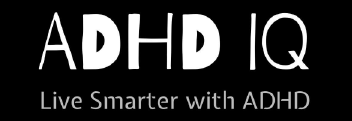ADHD Insights
Real Help For ADHD
How Can Therapy Help with ADHD?
After the assessment, we will meet to review my findings and collaborate on a customized treatment program that fits your goals and your family’s needs. The plan may include regular therapy sessions and coaching with parents, caregivers, kids, teens, or adults.
Therapy can help you in four key ways:
1. Supporting the Individual
Therapy offers a safe space for you and your loved ones to be themselves, open up, and find support. As a therapist, I can provide tools and recommendations to navigate the debilitating symptoms of ADHD. We will identify and build upon strengths, increase motivation and self-esteem, and develop better self-control and emotional regulation.
2. Educating Family Members
Therapy provides valuable information about ADHD. You and your family will gain a deep understanding of how it affects the patient and those around them and how to make ADHD-informed choices. You will also learn practical parenting strategies, behavior management skills, and schoolwork techniques to help your child succeed.
3. ADHD Coaching
Coaching can be an important component of therapy. ADHD coaching is a method through which you can learn to manage ADHD in partnership with an expert who will help you develop sustainable changes that make the challenges of ADHD more manageable. You will learn to understand how ADHD plays a role in your or your child’s life and identify strategies that help. A coach helps navigate the implementation of these strategies and refine them in a supportive and non-judgmental space.
4. Strengthening Family Systems
Above all, therapy can help build stronger family systems. When implementing what’s learned in therapy, you can improve your communication and reduce conflicts at home. Having a peaceful environment will then result in a healthier foundation to face ADHD challenges.
What is ADHD?
Attention-Deficit/Hyperactivity Disorder (also known as ADHD) is a neurodevelopmental condition that interferes with the brain’s capacity to manage attention, inhibition, and emotions. ADHD causes a dysfunctional pattern of inattention and/or hyperactivity-impulsivity.
Of course, we can all occasionally struggle to focus, stay still, or control impulsive emotions and actions. But, some people experience these issues in such a persistent and severe way that carrying on with daily activities becomes difficult.
Some of the risk factors related to ADHD include:
- Genetics or family history of ADHD and other mental health disorders
- Exposure to environmental toxins during childhood (e.g., lead, pesticides)
- Premature birth or low weight at birth
- Brain injuries
When do ADHD symptoms start?
ADHD symptoms tend to appear in early childhood, as early as age 3, up to age 12. However, since signs can be hard to notice, given the natural active, somewhat impulsive, and inattentive behavior that many children have at an early age, it’s common for parents and caregivers to miss or confuse the symptoms with something else. This challenge to spot the signs of ADHD often results in a delayed diagnosis with many young and older adults living with this disorder without knowing it or receiving treatment.
People with hyperactivity-impulsivity as their prevalent symptom are often quickly identified; however, many individuals with inattentive tendencies tend to be missed or undiagnosed, especially young girls. While some people grow out of their ADHD symptoms as they enter their mid-late 20’s, most continue to experience difficulties with organization, focus, and impulsivity throughout their lifespan.
Does My Child Have ADHD? Do I have ADHD?
Reaching an accurate ADHD diagnosis for you or your loved one requires a detailed assessment by a licensed psychotherapist. During the evaluation, I will ask questions to the caregivers, kids, teens, or individual and conduct psychological assessments to determine whether the symptoms meet the ADHD diagnosis or a different condition.
To meet the criteria for ADHD, the signs of inattention, hyperactivity, and/or impulsivity must be severe, persistent, and lasting, mult impede the individual’s functioning or development.
A timely and precise diagnosis is the first step of ADHD treatment. It provides a clear roadmap for you and your family and allows us to prepare a plan moving forward.
If you have questions about the ADHD assessment process, just click ‘Request Appointment‘ above for a free consultation.
Common Benefits of ADHD Treatment
Improve your understanding of ADHD, how it affects you, your child, or teen, and identify what helps.
Implement effective, ADHD informed parenting strategies and behavior management skills.
Build systems and strategies to support success and scaffold ADHD related challenges.
Improve self-regulation and emotional reactivity.
Communicate more effectively within your family.
Improve your ability to help your child or teen manage anger, impulsivity, and defiance.
Obtain school accommodations for ADHD to improve academic achievement.
Learn ADHD specific academic success techniques (homework completion plans, organization skills, motivation, and time management).
Decrease tension and conflict in the home.
Improve executive functioning deficits to help with academic performance, relationships, financial responsibility, and decision making.
Identify and build on strengths to build self-esteem and self efficacy.
Increase motivation, independence, and accountability.
